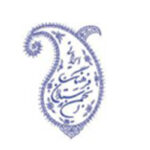Young people explore how Bahá’í ideals can steer professional life
This past summer, a cohort of young professionals from across North America participated in the ISGP graduate seminar and thought deeply about the conceptual framework that guides their work.
Participants and facilitators at the July 2022 ISGP graduate seminar hosted at the Green Acre Bahá’í Centre for Learning in Eliot, Maine.
From July 3-14, 2022, 71 young professionals from the United States and Canada gathered for a seminar organized by the Institute for Studies in Global Prosperity (ISGP) at the Green Acre Bahá’í Centre for Learning in Eliot, Maine. The graduate seminar assists individuals “to develop the capacity to examine and analyze society and the forces acting upon it, and to contribute to the evolution of thought and practice within their academic and professional fields…”[1] A significant number of the participants had completed four years of the undergraduate seminars.
Over the course of the seminar, they developed their capacity to analyze the underlying concepts that form the basis of their professions and fields of study and think about society with an historical perspective. “How can we innovate the fields we are working in without understanding their methodologies and underlying assumptions?” asks Anish Arora, a participant and PhD student at McGill University. During the seminar, eight facilitators guided the participants through a set of materials that explore the implications of the systems and structures of society on their fields.
Alongside this analysis, participants sought ways to contribute to the transformation of their fields, applying insights from the Bahá’í Writings and the accumulating experience of the worldwide Bahá’í community. Ariana Vajdi, a participant from Los Angeles, Calif. in the area of medicine and healthcare, says that young Bahá’ís struggle to find ways to express their high ideals in academic and professional settings. The ISGP seminars are paving the way for these ideals to be expressed.
Drawing on science and religion as two complementary systems of knowledge and practice, participants examined elements of the conceptual framework that shapes their thoughts and actions from a Bahá’í perspective. “Everyone is talking about justice,” explains Ms. Vajdi. “I think it’s helpful that we clarify what we mean by justice,” Mr. Arora adds, “This seminar helps us to push the boundaries of what justice is beyond just fairness and equity, and to think about what it can look like practically in the context of the fields we’re working in.”
While they understand that this conceptual framework is evolving, participants appreciate the clarity of thought that is gained as they investigate the elements of this framework together. “I think you come out asking more questions than anything,” explains Mr. Arora. And I think that’s key because you begin to see the world in a way that’s more profound…I’m not going to say I understand what justice is, but at least because I participated in ISGP, my thinking is more thorough than it was before.”
As an outcome of this advance in their thinking, the two participants feel they have the confidence to express their views in settings where discourse occurs with an increasing clarity of expression.
Mr. Arora’s research as a PhD student in family medicine and primary care at McGill University involves identifying factors that improve the quality of life of migrant people living with HIV, and the delivery and organization of their care. While there is already much existing knowledge of the life-saving pharmaceutical treatment of individuals living with HIV, other factors, such as the impact of one’s social environment, have historically received less research attention.
While this is an area that Mr. Arora has been thinking about for several years, at the ISGP seminar he met others in the medical field who, like him, consider health as interdisciplinary, with an interest in fledgling research around the impact of one’s social environment on health. During break times at the seminar, participants organized consultations with people from similar fields around the pressing challenges and questions they were seeing in their work or studies. Regarding this informal space, Ms. Vajdi shares, “Our intention was to think about how we can apply some of the insights from the seminar to our field. And how we can work together towards that—maybe continue to have conversations over time.”
This coming together of people from the same disciplines was a highlight of the ISGP seminar for Mr. Arora. “For anyone coming to the seminar,” he says, “[it] gives them an opportunity to connect with people from North America who are young, like-minded…who all have the same desire to create some sort of systemic change that’s meaningful to their field of work.”
Mr. Arora and Ms. Vajdi look forward to carrying the conversations that they started at the ISGP seminar to other spaces where they interact with young people. While they gained some clarity at the seminar around several pressing questions for their work as professionals and university graduates, there are many more to be explored.
The next ISGP graduate seminar will be held from 30 June to 11 July 2023 at Louhelen Bahá’í School in Davison, Mich. The deadline to apply is January 8, 2022. The seminar application form can be accessed at the following URL: https://forms.gle/3VCeNYZ4aPTuWNeN8.
Announcement for the 2023 seminar
[1] The Institute for Studies in Global Prosperity (2022) Educational Efforts for Young Adults https://www.globalprosperity.org/lines-of-action/educational-efforts-for-young-adults/#seminars-for-university-graduates-andbr–young-professionals
Category: Features








